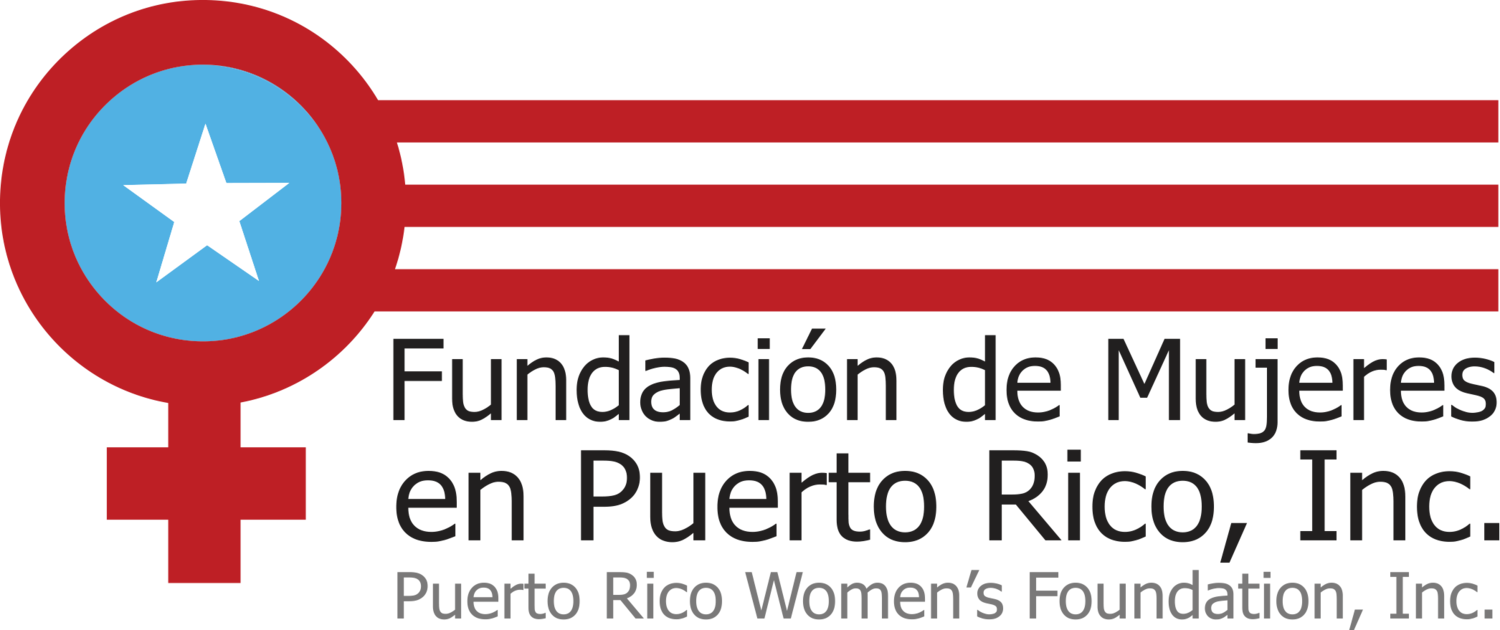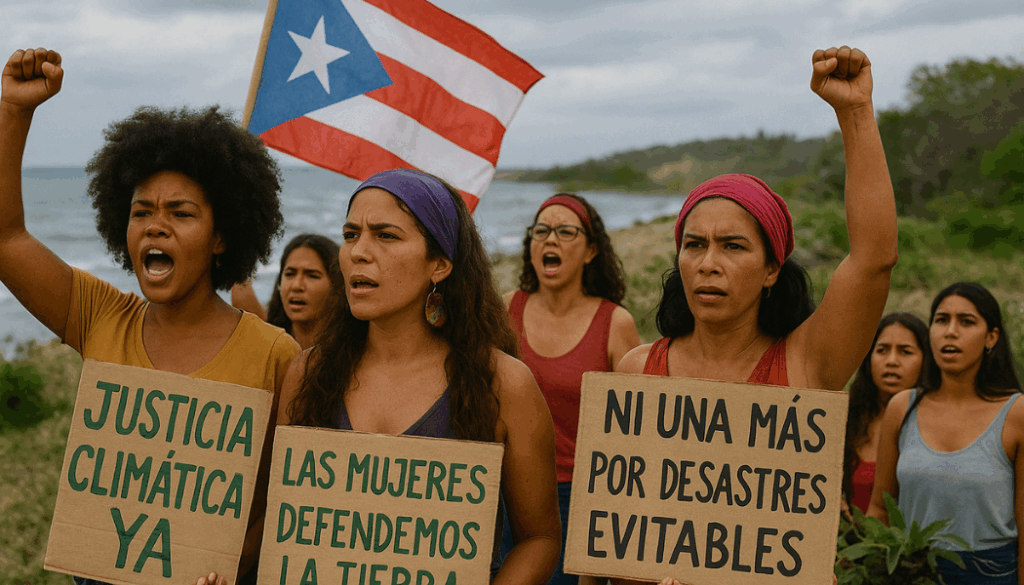About the Author: Verónica Colón Rosario is the Executive Director of Fundación de Mujeres en Puerto Rico, the island’s first and only gender justice fund. With a background in psychology and Latin American studies, she brings over a decade of experience in social impact, program design, and feminist philanthropy across Puerto Rico and the U.S. Her work centers racial and gender equity, anti-colonial practice, and community power-building. A SOAR Fellow with the Aspen Institute and Líderes Fellow with Hispanics in Philanthropy, Verónica also serves on the boards of the Women’s Funding Network, the Haitian Women’s Collective, and True Self Foundation.
Puerto Rico is on the frontlines of the global climate crisis.
According to the Climate Risk Index 2025 by Germanwatch, our archipelago ranked among the ten regions most affected by extreme weather events in 2022. Hurricanes, floods, earthquakes, and heatwaves are no longer isolated incidents—they are persistent threats that reshape daily life, economic stability, and community health.
In the face of this reality, one thing is clear: there can be no climate justice in Puerto Rico without gender justice. Women, girls, and LGBTQ+ people not only face the disproportionate impacts of climate disasters—they are also leading the way toward sustainable, community-based recovery.
Yet, they remain invisible and dramatically underfunded.
At the Fundación de Mujeres en Puerto Rico, a community foundation committed to equity, we believe true resilience begins by recognizing and investing in gender-inclusive, women-led solutions.
The Climate Crisis in Puerto Rico
An Urgent Call for a Gender Lens
Puerto Rico’s vulnerability to climate disasters is among the highest in the world. Despite contributing minimally to global emissions, the Caribbean bears a disproportionate cost, with climate damages in some countries exceeding 1% of GDP. Locally, the impacts are devastating. After Hurricane María in 2017, infrastructure—especially the energy system—collapsed. Entire communities went months, even over a year, without reliable electricity. These failures placed a tremendous burden on women, who often assume caregiving roles, develop survival strategies, and ensure access to water, healthcare, and education under increasingly precarious conditions. Additionally, highly feminized economic sectors—such as education, health, and social services—are among the first to collapse after a disaster. In the face of institutional failure, women take on unpaid labor that deepens economic insecurity and harms their mental health. Disasters don’t just destroy infrastructure; they tear apart the fragile progress we’ve made in gender equity.
How Climate Disasters Deepen Gender Inequality
Each new disaster diverts limited resources away from critical gender equity work.
Rather than advancing leadership, economic empowerment, and community organizing, women-led organizations are forced into survival mode—providing food, temporary shelter, psychosocial support, and emergency relief.
This ongoing cycle:
- Halts long-term empowerment efforts
- Undermines community-based solutions
- Exacerbates existing inequalities
Without sustained and intentional funding for climate resilience led by women, every hurricane, earthquake, or flood threatens to erase years of progress.
Women Leading Recovery—Against All Odds
Despite structural barriers, women-led and LGBTQ-inclusive organizations have been the backbone of Puerto Rico’s recovery:
- Casa Juana Colón in Comerío organized food and care brigades for elders during the pandemic and after multiple climate disasters.
- Taller Salud in Loíza provided mental health services, emergency supplies, and healthcare support in historically marginalized communities.
- Fundación de Mujeres en Puerto Rico mobilized emergency funds and elevated feminist leadership across the archipelago.
These organizations have proven that true strength and resilience are born in our communities. Still, they receive only a fraction of the funding granted to large external aid agencies.
This inequity is fueled by:
- Delays and restrictions in federal funding
- A weaker philanthropic infrastructure compared to the U.S. mainland
- Systemic underinvestment in local leadership
Without intentional support, each disaster threatens not only recovery but also the momentum of Puerto Rico’s gender justice movement.
Toward a Climate Future with Gender Equity
At the Fundación de Mujeres en Puerto Rico, we believe in anticipating—not just reacting. We strengthen those on the frontlines long before the emergency hits.
Through our Mitigation Fund, we provide flexible operational grants that reinforce the foundations of women-led, community-rooted organizations. These grants allow them to:
- Strengthen financial and administrative systems
- Develop emergency preparedness plans
- Train leaders in crisis adaptation
- Support community mental health
- Invest in communication and coordination networks
Strong organizations don’t have to choose between survival and justice.
They can address urgent needs while continuing to fight for systemic change.
To build sustainable and inclusive solutions to climate change, we must:
- Prioritize operational funding for women-led and LGBTQ-inclusive organizations
- Include women’s leadership in disaster planning and response
- Recognize women not as victims, but as architects of resilience and sustainability
Puerto Rico offers the world a vital lesson:
There is no climate resilience without gender justice.
There is no just recovery without investing in the leadership of women, girls, and LGBTQ+ communities.
Support gender-informed climate resilience in Puerto Rico.

